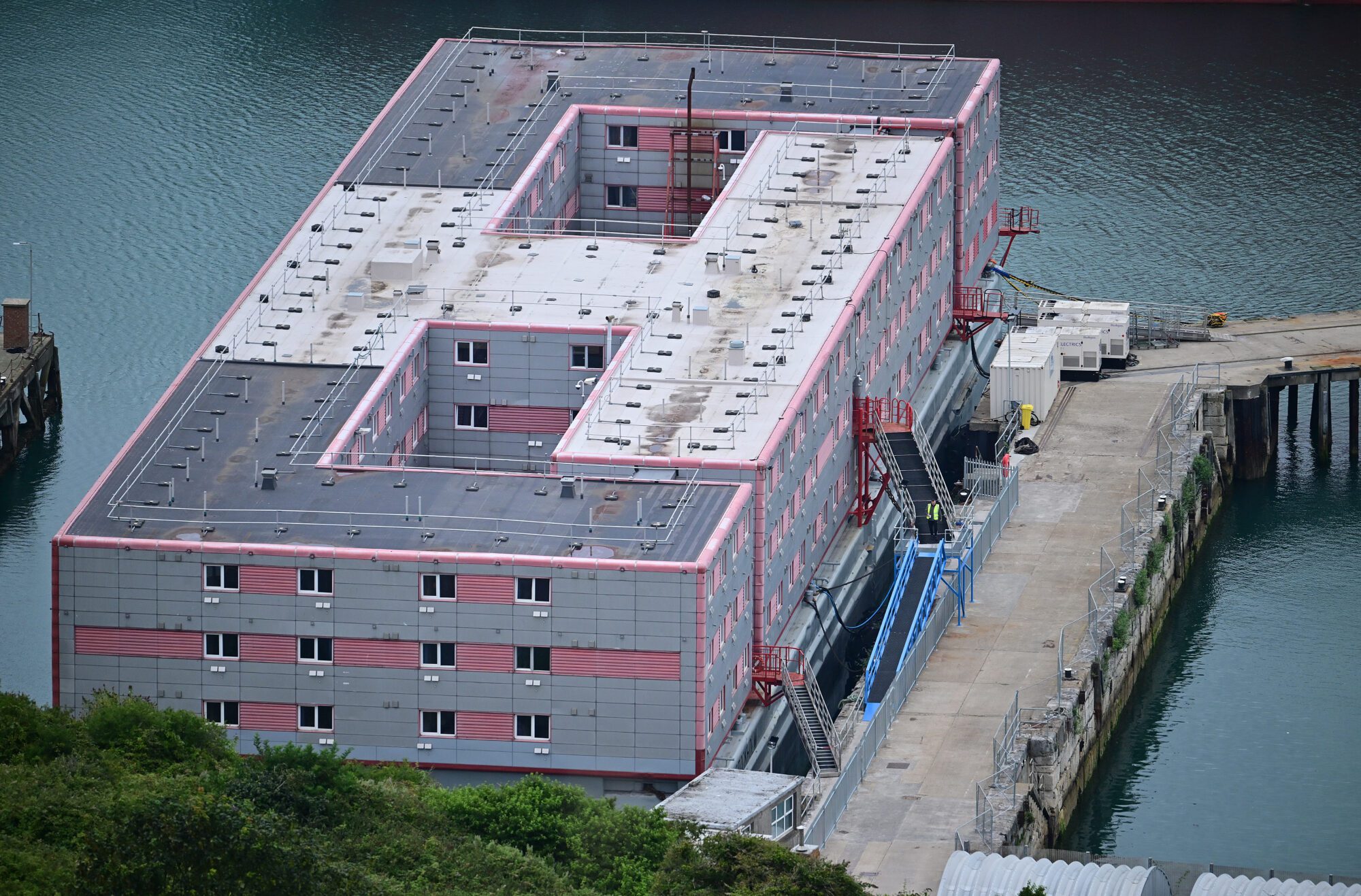
The Bibby Stockholm accommodation barge at Portland Port on the south-west coast of England on August 8th, 2023.
BEN STANSALL / AFP
Thirty-nine migrants, temporarily housed on the Bibby Stockholm barge moored on Portland Port, Dorset, were evacuated last Friday, August 11th. The decision came after it had been discovered that the vessel’s water pipes contained the potentially deadly Legionella bacteria.
According to a statement by the Home Office on August 11th, “No individuals on board have presented with symptoms of Legionnaires’ [a severe form of pneumonia caused by Legionella bacteria], and asylum seekers are being provided with appropriate advice and support.”
In addition, the samples taken related “only to the water system on the vessel itself and therefore carry no direct risk indication for the wider community of Portland nor do they relate to fresh water entering the vessel.”
Around 5%-10% of cases of Legionnaires’ disease are fatal.
According to Dorset Council however, the presence of the bacteria, particularly dangerous when found in water pipes that have not been in use for a long time, had already been made known to government contractors on Monday, August 7th, mere hours after the first 15 migrants had entered the ship.
The Council went on to state that a Home Office official had been notified the following day, meaning the evacuation came three days late.
A senior Home Office source told BBC News that the person notified that Tuesday was a “junior” member of staff who happened to be on a call with contractors.
The source added his department did not receive a formal notification of the presence of Legionella until late Wednesday, August 9th.
Last Monday, Health Secretary Steve Barclay said he himself could not say whether Dorset council had informed the Home Office earlier about the test results on the vessel.
During an in-studio interview with Sky News, he said that “as soon as ministers were notified [about the presence of the bacteria] on [last] Thursday night, there were some concerns with that,” and “they took instant action.”
The decision to evacuate the barge came after a Thursday night recommendation by the UK Health Security Agency (UKHSA).
Prof. Dame Jenny Harries, the agency’s chief executive, said that Legionella bacteria detected in routine tests would not “necessarily indicate there is a systemic problem,” and that it “does not necessarily mean there is a significant risk to human health.”
The Bibby Stockholm, long left unused, has been touted by the British Tory-led government as a cheaper alternative to hotels for migrants to be housed while their claims for asylum are being processed.
Ahead of next year’s general election, an ailing Tory party is keen to appear tough on migration, a key promise to its voter base.
Portland Mayor Carralyn Parkes, who is pursuing legal action against the Home Office, has raised questions about the delay.
“The legionella test results came back on Monday [August 7th]. Why were the asylum seekers not moved off the barge immediately? It’s all a bit chaotic. Hasty decisions have put people on the barge at risk,” she said.
In early July, as the government’s intention to contract the barge was made known, over 50 NGOs and campaigners, including Refugee Council, Asylum Matters, and Refugee Action penned an open letter to the owner of the vessel, in which they criticized the barge’s prison-like conditions (which, they argued, retraumatizing those who fled war), and the company’s historical ties to the slave trade.
More recently, the firefighters’ union came out with its own concerns, speaking of a “potential deathtrap.”
Despite these protests, later on Monday, British PM Rishi Sunak reaffirmed his commitment to keep using the barge, now empty, which is to house up to 500 men, aged 18-65.
For the time being, Bibby Stockholm lies empty, while the Home Office awaits results of further tests for the Legionella bacteria.
